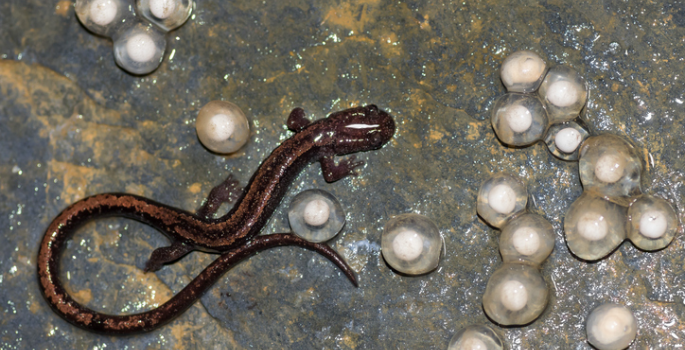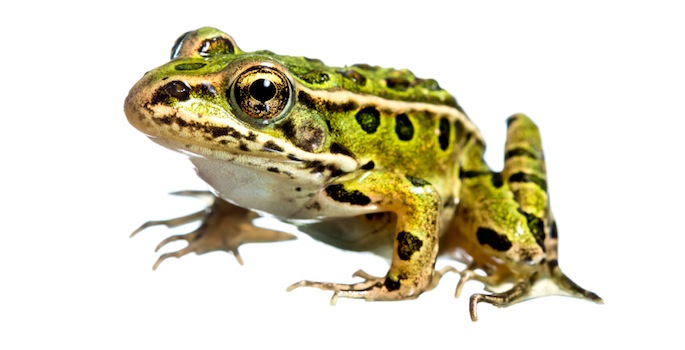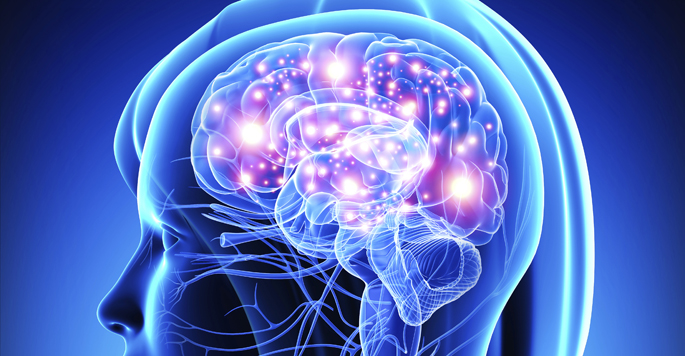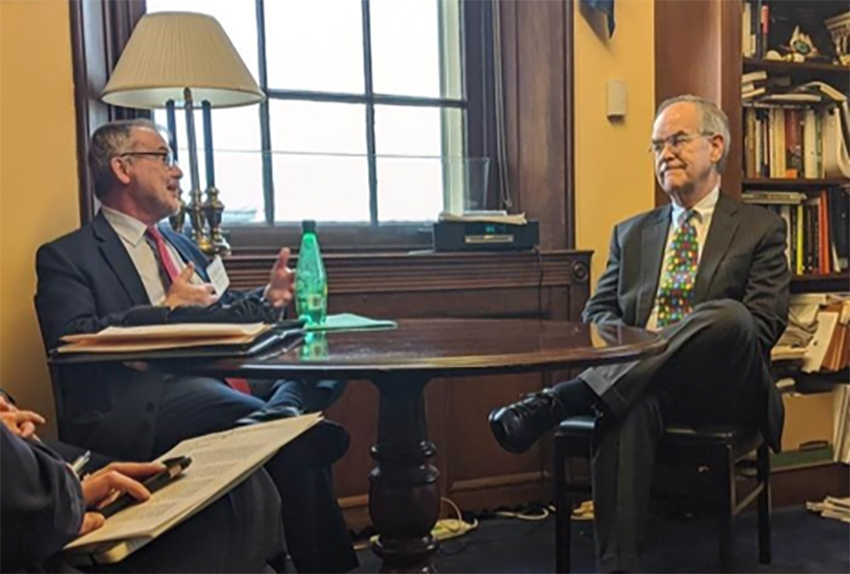National Science Foundation
-

Research Snapshot: Vanderbilt astronomers lead preparation for supermassive black hole analysis
Vanderbilt astronomers lead group that created the roadmap for studying supermassive black holes after detecting the low-frequency gravitational waves they create. Est. reading time: 2 mins. Read MoreMay 7, 2021
-

Vanderbilt civil engineer to design tech-driven decision-making and disaster response tools for Houston-area food banks
Following massive storms and a major disaster declaration in Texas, Hiba Baroud and collaborators selected by the NSF, DOE and DHS as Civic Innovation Challenge awardees, to develop tech-driven disaster response tools. Read MoreApr 2, 2021
-

Temperature, newts, and a skin-eating fungus
The emergence of pathogenic skin fungi that cause the disease chytridiomycosis is contributing to the global loss of amphibian populations. Read MoreMar 8, 2021
-

Optical computing at sub-picosecond speeds developed at Vanderbilt
Sharon Weiss and Richard Haglund are the first to demonstrate the next generation of optical computing, turning on and off light in less than one trillionth of a second. Read MoreJan 14, 2021
-

Researchers develop unique process for producing light-matter mixture
Discovery provides insight for developing next generation optoelectronic and infrared devices In groundbreaking new research, an international team that includes a Vanderbilt engineer has developed a unique process for producing a quantum state that is part light and part matter. Read MoreDec 7, 2020
-

Frog peptides as anti-HIV microbicides
Peptides derived from the antimicrobial peptides secreted by frogs could function as microbicides to limit HIV transmission, while sparing protective vaginal bacteria. Read MoreNov 2, 2020
-

Depression and the brain-age gap
Older depressed adults show accelerated brain aging, according to a new study from Vanderbilt researchers, who suggest that the effects of depression may speed the decline in cognitive functions in older individuals. Read MoreOct 19, 2020
-

Vanderbilt computer scientists awarded NSF grant to restructure research’s road to the public
Vanderbilt researchers have been awarded a National Science Foundation Convergence Accelerator 2020 Cohort Phase 1 grant to create a standardized platform that will streamline the development, testing and dissemination of technology that can improve human health. The nine-month project, “Scalable, Traceable AI for Imaging Translation: Innovation to Implementation for Accelerated Impact (STRAIT I3),” looks specifically... Read MoreSep 22, 2020
-

Vanderbilt researcher receives $3.9 million in grants to redesign regional transit system using artificial intelligence, community engagement
Working on multiple elements of Chattanooga’s transit system, Abhishek Dubey is reimagining the way a city moves. Read MoreSep 17, 2020
-

Vanderbilt scientists awarded NSF grant to examine the future of international shipping in the Arctic Ocean
Comparing risk of shipping along the Arctic and the Suez Canal through 2100 scientists weigh factors including climate change in their calculations. Read MoreSep 11, 2020
-

Vanderbilt leads $5M project to revolutionize neurodiverse employment through AI
The National Science Foundation has awarded a highly competitive $5 million grant to Vanderbilt University that greatly expands a School of Engineering-led project for creating novel AI technology and tools and platforms that train and support individuals with Autism Spectrum Disorder in the workplace. Read MoreSep 11, 2020
-

Vanderbilt astrophysicist part of international team that discovered a gargantuan ‘alien’ black hole that challenges previous knowledge of the universe
The intermediate-mass black hole first observed in May 2019 presents an entirely new category of black hole. Read MoreSep 2, 2020
-

The importance of estrogen cycles
Deborah Lannigan and colleagues identify a key regulator of the estrogen receptor and suggest that its downregulation by oral contraceptives may increase oxidative stress and DNA damage, a common cause of cancer. Read MoreAug 6, 2020
-

Geochemical analysis from the last ice age may hold clues for future climate change and preparedness strategies
Paleoclimatologist Jessica Oster uses geological clues from stalagmites to explore implications for future climate change. Read MoreJul 14, 2020
-

Vanderbilt defines the pathways for solid-state battery development
Vanderbilt researcher Kelsey Hatzell leads the discussion on the future of solid-state batteries. Read MoreJun 19, 2020
-

Bangladesh collaboration offers lessons for facing rapid environmental changes
With a population of roughly 150 million people, the delta country of Bangladesh holds about half the population of the entire United States in an area the size of Louisiana, and exists under a near-constant risk of sea level rise and other dynamic climate changes. Read MoreFeb 24, 2020
-

U.S. competitiveness among topics discussed during Fauchet’s visit to Capitol Hill
United States competitiveness, workforce development and university partnerships were the topics of interest for Philippe Fauchet, Bruce and Bridgitt Evans Dean of the School of Engineering, and members and staff of the Tennessee congressional delegation earlier this month in Washington, D.C. Read MoreFeb 17, 2020
-

How to fake a medical record
Simulated electronic health records could avoid patient privacy risks and help speed discovery. Read MoreNov 4, 2019
-

Microscopic spines connect worm neurons
Worm neurons have microscopic “spines” — where nerve-to-nerve communication happens — that share features with mammalian neurons, supporting the use of worms to study spine genetics and biology. Read MoreOct 17, 2019
-

Labels like ‘Asian fail’ and ‘Black genius’ are no joke for STEM students of color: report
Vanderbilt professor Ebony O. McGee studied the collegiate experiences and academic and career decisions of 61 Black, Latinx and Asian advanced undergraduate STEM college students. Read MoreJan 14, 2019